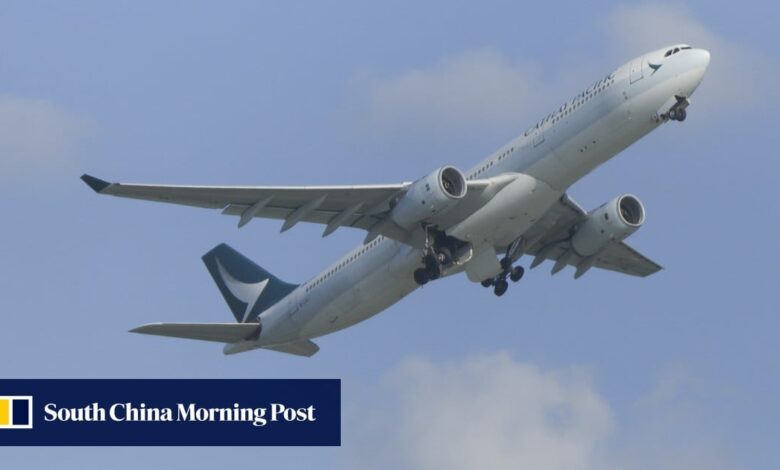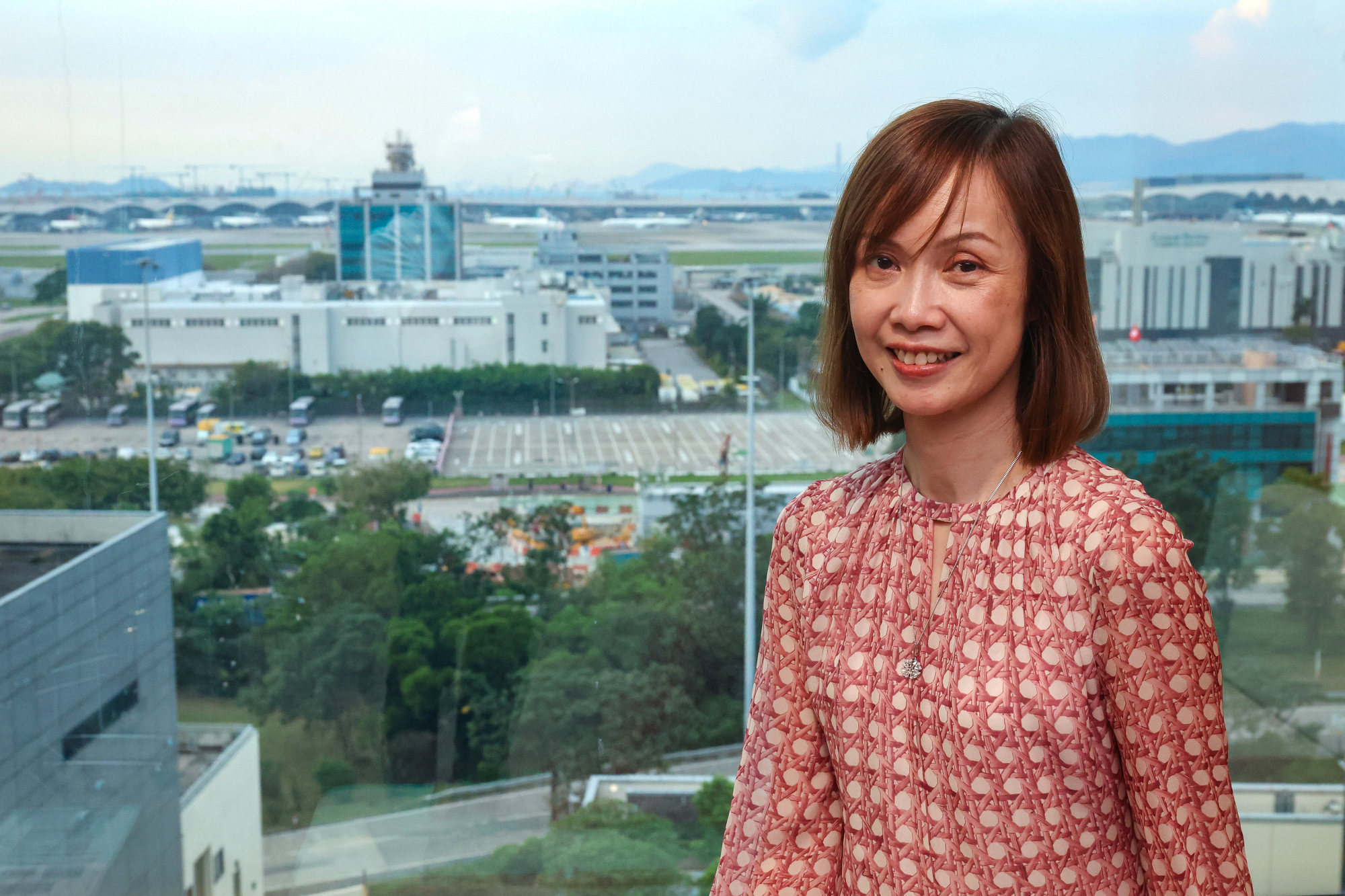Exclusive: Sky-high air fares new normal for Hong Kong and rest of world, top Cathay Pacific executive says

[ad_1]
Lavinia Lau Hoi-zee, 53, the chief customer and commercial officer at the city’s flag carrier, also told the Post the airline was “turning on all the taps” to recruit staff and was on track to hire 1,000 cabin crew in Hong Kong this year.
But she said expenses along the entire supply chain had been increasing, including costs for catering, engineering and ground handlers, amid limited resources.

“Currently what we are seeing is that along the entire aviation ecosystem, there are a lot of cost escalations.” Lau said. “So we will have to factor that into our prices.”
“If we expect that air fares will go back to pre-Covid levels, that might not be very realistic … as we continue to put in more supply, that particular factor might ease a bit, but the overall cost escalations and so on, I think we just need to acknowledge that.”
Aviation analytics firm Cirium said average economy class fares in August between Hong Kong and London Heathrow on all carriers were up 25 per cent, compared with the same month in 2019.
Flights to New York’s John F. Kennedy International Airport were 36 per cent higher over the same period. Tickets to Tokyo’s Haneda airport were 19 per cent higher and flights to nearby Narita were 29 per cent higher.
Business class fares were between 19 to 26 per cent higher on the same routes over the period, apart from Tokyo’s Haneda where prices dropped by 11 per cent.
Lau said bookings for leisure travel were “strong”, and that she had been surprised that business travel had almost returned to pre-pandemic levels as a proportion of Cathay’s overall traffic, especially demand to and from mainland China.
The Cathay Group, including its budget arm HK Express, has set a target to recruit 3,000 people this year, and Lau said they were “turning on all the taps” to hit the target. But she admitted that “every industry was fighting for a similar pool of people”.
Hong Kong needs 2 to 4 years to reclaim aviation hub title: Cathay pilots’ union
Hong Kong needs 2 to 4 years to reclaim aviation hub title: Cathay pilots’ union
Cathay said it was on track to hire about 1,000 cabin crew in Hong Kong this year, with plans to hire between 200 to 300 from the mainland this year. The company is also recruiting in Japan, Malaysia and Thailand.
The group wants to hire 4,000 people from mainland China by 2025, including cadet pilots, cabin crew, IT professionals, ground employees and customer service staff.
It is expected that 800 cadet pilots will be recruited by the end of next year.
Paul Weatherilt, the chairman of the Hong Kong Aircrew Officers Association, last week cast doubt on whether Cathay would be able to complete the training needed to increase the number of pilots to pre-pandemic levels by the end of next year.
Lau said the airline was holding extra classes to get people trained as fast as possible. She added the carrier would continue the battle to restore flight capacity levels to normal as quickly as possible “in a measured and responsible manner”.
“We are not just going to add when we know that the whole experience will not be good, or there will be quality issues,” she said. “We will not allow that.”
Hong Kong flag carrier Cathay Pacific seals cut-price deal on 32 new Airbus jets
Hong Kong flag carrier Cathay Pacific seals cut-price deal on 32 new Airbus jets
Simon Lee Siu-po, honorary institute fellow at the Asia-Pacific Institute of Business at Chinese University, said the labour shortage issue was the major problem, with lack of available pilots and ground handling staff.
“Demand for flights to and from China are limited, and people are using Hong Kong to transit, so this also pushed ticket prices up,” he added.
“The days that we jump to Taiwan for three days or go shopping in Tokyo and come back to work on Monday, that is no more,” he said.
Shukor Yusof, the founder of aviation advisory firm Endau Analytics, agreed with Lau that operating costs of airlines, from labour costs to fuel, had rocketed.
“Anybody who wants to fly, you’ll have to expect to pay more, even if you’re flying on discount airlines,” Yusof said. “As long as interest rates and inflation stay where they are you can expect air fares to be firm.
“Those days when you could fly from Hong Kong to Taiwan for the price of a jug of beer, I think those days are over.”
[ad_2]
Source link





